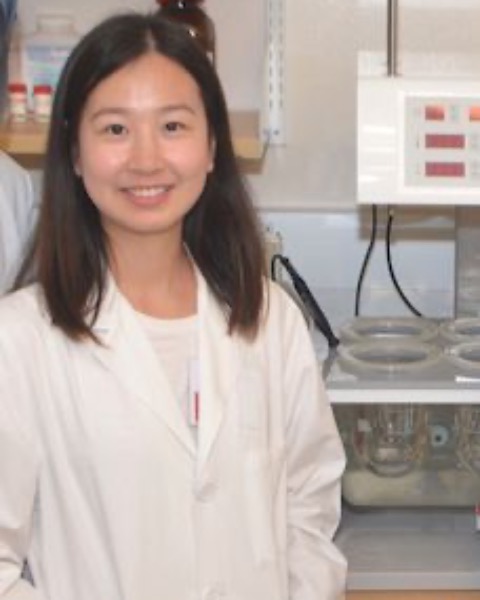Pharmacometrics & Pharmacokinetics (PMK)
Category: Member Submission
Poster Session I
LB-034 - THE POPULATION PHARMACOKINETICS STUDY OF ANTI-TUMOR B AMONG HEALTHY VOLUNTEER AND ORAL CANCER PATIENTS TO INFORM DOSE DECISION
Wednesday, March 27, 2024
5:00 PM - 6:30 PM MDT
J. Chen1, M. You2, S. Wong3, M. Hu1; 1University of Houston, , , 2Houston Methodist, , , 3Medical College of Wisconsin, , .

Jie Chen, N/A, MS (she/her/hers)
Research assistant
University of Houston
Sugarland, Texas, United States
Presenting Author(s)
Background: Anti-tumor B (ATB), an herb formulation prepared by the water extraction of 6 plants, has been shown to prevent oral cancer in both preclinical studies and clinical studies. Though the clinical trials indicated significant efficacy in treating oral cancer patients, the safety and efficacy dose for Anti-tumor B is not well studied. Therefore, the objective of this research was to develop a population pharmacokinetic (popPK) model for matrine (Matr), the major active component in ATB, to characterize the PK, conduct covariates analysis, and determine the effects of those covariates on the PK parameters, therefore assessing the safety dose for ATB in treating oral cancer patients.
Methods: We plan to conduct a PK analysis of ATB in patients with oral squamous cell cancer (n=20). Patients who meet the inclusion criteria will be administered ATB. On day 1, each patient will receive ATB tablets (4 tablets, 300 mg each), and their paired blood and saliva PK samples will be collected until 24 hours post-dose. From day 2 until the surgery, patients will receive 1200 mg of ATB (TID), and saliva will be collected daily. The previously established and validated LC-MS/MS method will be utilized to analyze the concentrations of Matr in both saliva and blood samples. The concentration of matrine in saliva collected daily during multiple doses will be used as a criterion to monitor patient compliance. PopPK profile of Matr in both blood and saliva will be conducted to inform the safety dose and data from saliva and blood samples will be simulated to explore their correlation. A comparison will be made between the previously conducted pharmacokinetic profiles of healthy volunteers (n=4) and patients with oral squamous cell cancer to determine potential differences between these two population cohorts.
NOVELTY OF
Design: This is the first study to conduct popPK for Anti-tumor B in both healthy volunteers and oral cancer patients. This study could serve as a guide for conducting popPK on herbal components and addressing associated challenges. We aim to use saliva to be an optimal non-invasive sample type for conducting popPK. This is particularly relevant in our study using ATB for oral cancer treatment, where saliva concentrations hold greater significance.
